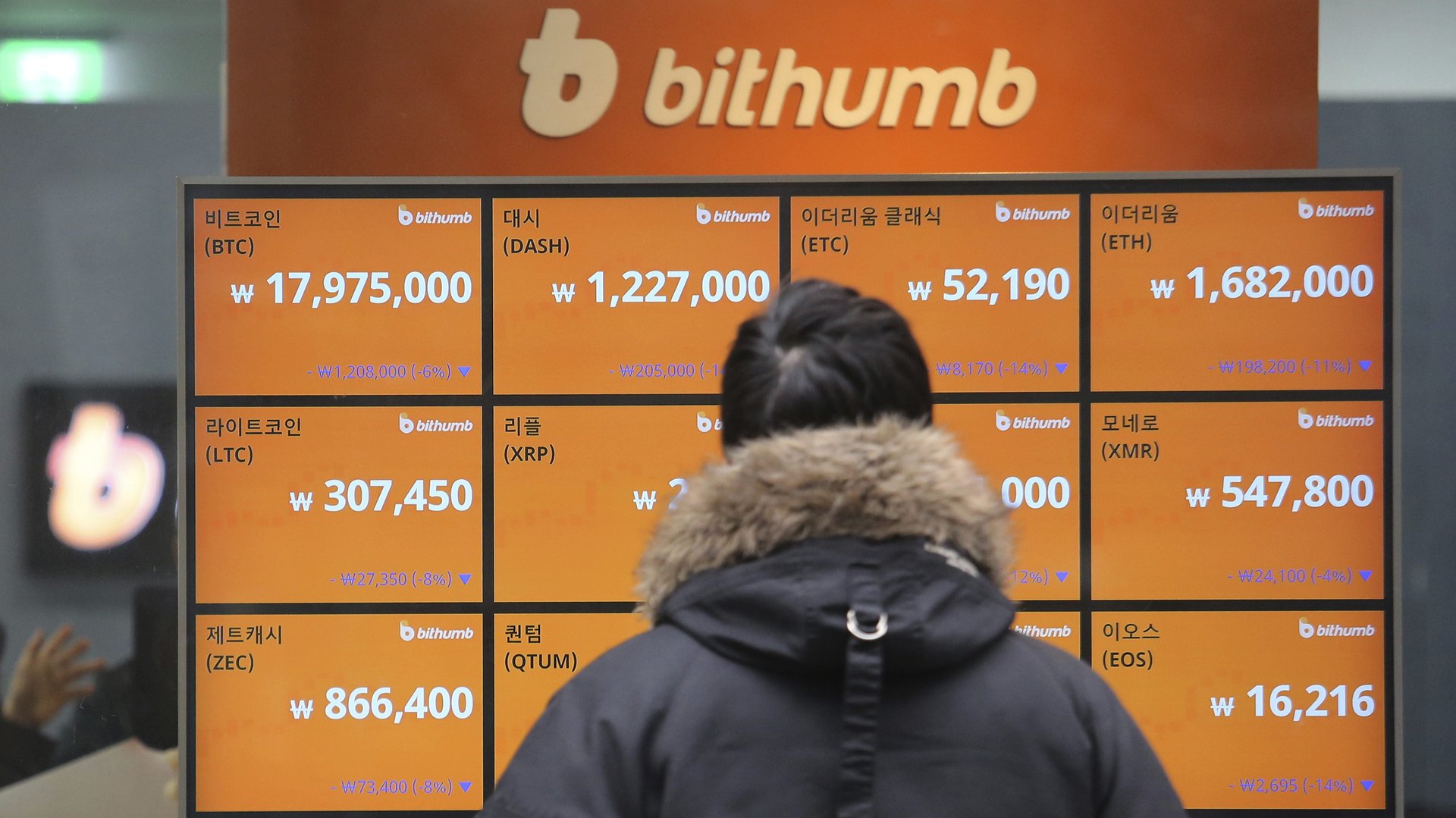South Korea will require real-name crypto trading by the end of this month
As concerns grow over crypto-mania in the country, South Korea’s government is doubling down on efforts to rein in trading of virtual currencies like bitcoin. The latest move is making real-name registration mandatory for crypto traders.


As concerns grow over crypto-mania in the country, South Korea’s government is doubling down on efforts to rein in trading of virtual currencies like bitcoin. The latest move is making real-name registration mandatory for crypto traders.
Today (Jan. 23), South Korea’s Financial Services Commission announced that a real-name registration system will be implemented for cryptocurrency trading by Jan. 30, according to Korean media reports (link in Korean). Investors will have to convert their virtual bank accounts to real-name bank accounts to continue trading. Deposits and withdrawals will only be allowed between real-name bank accounts and matching crypto-exchange accounts opened at the same bank. The system will cover six banks.
The move comes after South Korean authorities recently raided two major exchanges, and floated other ideas for restricting crypto-trading ranging from taxation to an outright ban on domestic trades.
South Korea accounts for an estimated 20% of global bitcoin trades, with many Koreans placing large parts of their savings in cryptoassets because the country lacks high-yield investment options (paywall) for retail investors. The government’s efforts to clamp down on crypto trades have triggered a public uproar in the country—a petition demanding an end to crypto regulation has garnered more than 200,000 signature in less than a month, which requires a response from the government.
The new regulations against cryptocurrencies were first introduced at the end of last year by Hong Nam-ki, minister of the Office for Government Policy Coordination. At that time, as bitcoin hit historic highs, Hong told local media that the government “can’t let this abnormal situation of speculation go on any longer.” Last week, South Korean news agency Yonhap reported that investors will be fined for refusing to convert their virtual accounts into real-name ones, citing unnamed financial authorities. Details about the penalty have yet to be revealed.
The real-name system could effectively exclude juveniles or non-resident foreigners from the market, and prevent money laundering and fraud. It could also serve as a database to help impose transaction-related taxes on exchanges: The South Korean government said earlier this week that it is planning to collect up to 24% of corporate and income taxes from local crypto exchanges this year.
Hailey Jo contributed to this article.